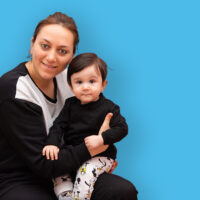Conduct disorders (CD)
-

JCPP Editorial: Volume 59, Issue 10, October 2018
“Troubled trajectories – new insights on risk pathways and developmental phenotypes of ADHD and externalizing problems” by S. Alexandra Burt, Jeffrey M. Halperin & Albertine J. Oldehinkel
Read more -

Reconstructing child psychopathy
Reconstructing child psychopathy into grandiose-manipulative, callous emotional and daring-impulsive traits will facilitate diagnosis and treatment of conduct disorder.
Read more -

Functional Family Therapy does not reduce ASB or offending in youths
A randomized controlled trial has found that Functional Family Therapy (FFT) plus Management As Usual (MAU) does not significantly reduce youth antisocial behaviour (ASB) or offending compared to MAU alone.
Read more -

Psychosocial interventions for disruptive behaviour problems are feasible in low and middle-income countries
Erly 2018, JCPP published data from a systematic review and meta-analysis of psychosocial interventions for disruptive behaviour problems in children in low and middle-income countries. The study, by Professor Matthew Burkey and colleagues, found that child-focused and behavioural parenting interventions may be effective for affected children in these socioeconomic groups.
Read more -

Children at risk of developing antisocial behaviours show deficits in affective empathy
Researchers in the Netherlands and UK have monitored cardiovascular and electrodermal activity and eye tracking to assess affective and cognitive empathy in children at high risk of engaging in criminal behaviours.
Read more -

Police contact during adolescence can delay female psychosocial maturation
Over the past 30 years, the rate of female juvenile arrests in the USA has almost doubled. Despite this rapid increase, most research into juvenile delinquency has primarily focused on males.
Read more -

Low empathy in adolescent boys predicts violent behaviour in adulthood
Low empathy and low resting heart rate are established, independent risk factors of antisocial behaviour. Now, researchers from the University of Pittsburgh have studied whether an interaction between these two factors during adolescence might mediate violent behaviour in early adulthood.
Read more -

How do we react when a child kills?
Sorry, but you do not have permission to view this content.Read more -

Child to Parent Violence
Professor Stephen Scott responds to the ITV news’ story about child to parent violence. It was based on a report published on 11 July called Let’s Talk About: Child to Parent Violence and Aggression by the authors Dr Wendy Thorley and Al Coates MBE.
Read more -
